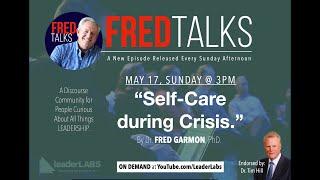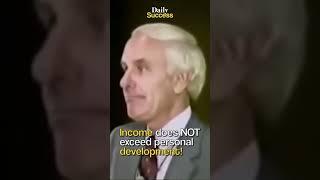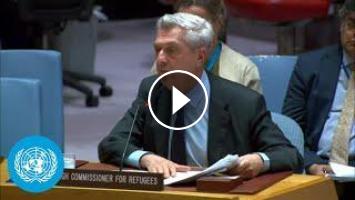Briefing by Filippo Grandi, United Nations High Commissioner for Refugees, during the Security Council, 9641st meeting.
United Nations High Commissioner for Refugees Filippo Grandi said, “this Council’s cacophony has meant that you have instead continued to preside over a broader cacophony of chaos around the world.” He urged the Council to put focus and energy on the crises and conflicts that remain unresolved, “so that they are not allowed to fester and explode again.”
The High Commissioner for Refugees briefed the Council today (30 May) on several crises and warned that the situation has grown worse.
On Gaza, Grandi said, “Let me add my voice to those who have been urging you to pursue an immediate ceasefire, the release of hostages, and the full resumption of humanitarian aid; and most importantly, to spare no effort to resurrect a real peace process — the only way to ensure peace and security to Israelis and Palestinians.”
High Commissioner for Refugees also said that from the perspective of his role and mandate —the atrocious dilemma of whether Palestinians should exit Gaza — or not — is one that Israel has the clear responsibility to avoid.
He said, “There is indeed a universal right to seek asylum, so often responded to by countries neighbouring conflicts, and which I will always advocate for, as a matter of principle. But in this case, there is also — and especially — the international legal obligation of an occupying power not to force, not to force, the civilian population to flee the territory it occupies.”
“And another forced exodus of Palestinians will only create one more intractable problem and make a solution to this decades-long conflict impossible to find,” Grandi reiterated.
The plight of Syrian refugees however gets attention only when other factors emerge — of late,
some arrivals of Syrians in EU countries have spurred a flurry of proposals on how to solve the
problem, including by sending back refugees to so called “safe areas” in Syria, the the High Commissioner said.
He reiterated once again UNHCR’s position, “the voluntary, safe return of Syrian refugees to their homeland is the best solution and their rights.”
On Myanmar, Grandi reiterated his recent appeal to the parties to “ensure the protection of civilians and of aid workers; to the countries neighbouring Myanmar to allow safe access for refugees fleeing for their lives; and to you to ensure that a political process to address Myanmar’s problems is again (and seriously) placed on the international agenda, before some of the consequences further threaten the stability of the region.”
Moving onto the Democratic Republic of Congo, the High Commissioner asked, “how can members of the United Nations, how can ‘we the peoples’ pay so little attention and have so much inaction in a place where sex with a child can be bought for less than a cold drink?”
“What a shameful stain on humanity,” he said.
On Ukraine, Grandi said that as the Council continues to deal with the war “as a political and military issue, don’t lose focus on its deep, devastating human consequences on the people of Ukraine.”
On Sudan, the High Commissioner said that there is a 500 percent increase in the number of Sudanese arriving in Europe in the year after the outbreak of violence. Most of them never wanted to leave home. But brutal violence has forces them to flee. And insufficient aid in neighbouring countries force them to move again — especially to North Africa and beyond, towards Europe.
Grandi continued, “Rich countries are constantly worrying about what they call ‘irregular movements’. But in this and other situations, they are not doing enough to help people before they entrust themselves to human traffickers. The consequences are inevitable. So, compliance with international humanitarian law — which of course is an obligation – also has an element of self-interest.”
United Nations High Commissioner for Refugees Filippo Grandi said, “this Council’s cacophony has meant that you have instead continued to preside over a broader cacophony of chaos around the world.” He urged the Council to put focus and energy on the crises and conflicts that remain unresolved, “so that they are not allowed to fester and explode again.”
The High Commissioner for Refugees briefed the Council today (30 May) on several crises and warned that the situation has grown worse.
On Gaza, Grandi said, “Let me add my voice to those who have been urging you to pursue an immediate ceasefire, the release of hostages, and the full resumption of humanitarian aid; and most importantly, to spare no effort to resurrect a real peace process — the only way to ensure peace and security to Israelis and Palestinians.”
High Commissioner for Refugees also said that from the perspective of his role and mandate —the atrocious dilemma of whether Palestinians should exit Gaza — or not — is one that Israel has the clear responsibility to avoid.
He said, “There is indeed a universal right to seek asylum, so often responded to by countries neighbouring conflicts, and which I will always advocate for, as a matter of principle. But in this case, there is also — and especially — the international legal obligation of an occupying power not to force, not to force, the civilian population to flee the territory it occupies.”
“And another forced exodus of Palestinians will only create one more intractable problem and make a solution to this decades-long conflict impossible to find,” Grandi reiterated.
The plight of Syrian refugees however gets attention only when other factors emerge — of late,
some arrivals of Syrians in EU countries have spurred a flurry of proposals on how to solve the
problem, including by sending back refugees to so called “safe areas” in Syria, the the High Commissioner said.
He reiterated once again UNHCR’s position, “the voluntary, safe return of Syrian refugees to their homeland is the best solution and their rights.”
On Myanmar, Grandi reiterated his recent appeal to the parties to “ensure the protection of civilians and of aid workers; to the countries neighbouring Myanmar to allow safe access for refugees fleeing for their lives; and to you to ensure that a political process to address Myanmar’s problems is again (and seriously) placed on the international agenda, before some of the consequences further threaten the stability of the region.”
Moving onto the Democratic Republic of Congo, the High Commissioner asked, “how can members of the United Nations, how can ‘we the peoples’ pay so little attention and have so much inaction in a place where sex with a child can be bought for less than a cold drink?”
“What a shameful stain on humanity,” he said.
On Ukraine, Grandi said that as the Council continues to deal with the war “as a political and military issue, don’t lose focus on its deep, devastating human consequences on the people of Ukraine.”
On Sudan, the High Commissioner said that there is a 500 percent increase in the number of Sudanese arriving in Europe in the year after the outbreak of violence. Most of them never wanted to leave home. But brutal violence has forces them to flee. And insufficient aid in neighbouring countries force them to move again — especially to North Africa and beyond, towards Europe.
Grandi continued, “Rich countries are constantly worrying about what they call ‘irregular movements’. But in this and other situations, they are not doing enough to help people before they entrust themselves to human traffickers. The consequences are inevitable. So, compliance with international humanitarian law — which of course is an obligation – also has an element of self-interest.”
- Category
- United Nations
- Tags
- UN, United Nations, UNGA
Be the first to comment













